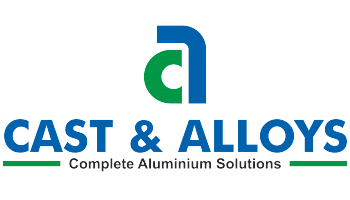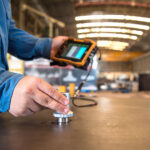In the ever-changing manufacturing industry, every little detail matters. From the design to the efficiency, every aspect plays a crucial role. precision and aesthetics often go hand in hand. One often ignored yet crucial component is surface quality.
Surface finish stands as a pivotal factor shaping the quality, functionality, and market appeal of the final product. Achieving the right surface finish during manufacturing processes like casting, and forging is crucial for ensuring that automotive parts are dimensionally accurate and function properly.
Selecting the right tools, cutting parameters, and machining techniques is key to achieving the desired surface finish. The right surface finish is essential for delivering components that meet stringent standards and exceed customer expectations.
Let’s explore why surface finish holds such significance in the Electric Vehicles and Automotive industry.
Understanding Surface Finish
The texture, roughness, and general quality of a material’s surface following processing or treatment are referred to as surface finish. It encompasses factors such as smoothness, uniformity, and the absence of defects like scratches, burrs, or pits.
Whether it’s the glossy sheen of a car’s paint job or the smooth feel of the dashboard, surface finish is a tangible aspect of the vehicle that directly influences the user experience.
Importance of Surface Finish in Electric Vehicles
In the realm of EVs, where innovation and technology reign supreme, surface finish plays a multifaceted role.
- Aerodynamics
Efficiency is crucial in the world of EVs, where every bit of battery power counts. To minimize aerodynamic drag, manufacturers need to focus on optimizing efficiency through smooth surfaces. Even minor surface imperfections can create disruptions and reduce efficiency. By minimizing air resistance through superior surface finish, manufacturers can extend the driving range and improve overall performance.
- Weight Reduction
A high-quality surface treatment is essential for making an EV lightweight. The vehicle’s handling and energy efficiency on the road also improve as a result. To achieve smoother surfaces without sacrificing the structural integrity of the car, experts have devised improved materials and production procedures. Reducing surface imperfections makes the car lighter without sacrificing quality. Innovative materials and production techniques make this feasible.
- Thermal Management
Efficient thermal management is crucial for EVs to maintain optimal battery performance and longevity. Surface finish affects heat dissipation and absorption, influencing the vehicle’s ability to regulate temperature effectively. By optimizing surface textures, engineers can enhance thermal conductivity, improving overall battery efficiency and lifespan.
- Brand image and Perception
Surface finish significantly influences the aesthetic appeal and brand perception of aluminum castings and forgings. Whether visible to end-users or integrated into larger assemblies, the surface finish reflects the quality, craftsmanship, and attention to detail invested in the product. A flawless paint job and premium interior surfaces create a sense of luxury and sophistication, attracting discerning consumers. In the competitive EV market, where brand image plays a pivotal role, attention to surface finish can be a key differentiator.
Importance of Surface Finish in the Automotive Industry
While EVs represent the cutting edge of automotive technology, surface finish remains equally relevant in traditional combustion-engine vehicles.
- Improved Corrosion Resistance
Aluminum’s inherent corrosion resistance is bolstered by achieving high-quality surface finishes. By meticulously addressing surface imperfections such as pores, cracks, and rough textures, we ensure the integrity of the oxide layer, thus enhancing the component’s resistance to corrosion, and protecting the vehicle’s body panels and undercarriage from rust and degradation. This is particularly crucial in applications exposed to harsh environmental conditions, ensuring the longevity and durability of the finished product.
- Compatibility with Coatings and Treatments
Surface finishes serve as a foundation for subsequent coatings and treatments. Whether it’s painting, anodizing, or powder coating, a smooth and uniform surface ensures better adhesion and coverage. This not only enhances the aesthetic appearance but also provides added protection against environmental factors and wear. By investing in High technology surface finishes, automakers can ensure long-lasting durability and color retention.
- Enhanced Aesthetic and Visual Appeal
High-quality surface finishes enhance the aesthetics and visual appeal of the aluminum cast and forged components used in the automotive industry. Whether it’s a sleek component or an intricately designed element, a flawless surface finish adds a touch of elegance and professionalism. High-quality surface finishes enhance the visual appeal and tactile sensation contributing to better quality and positive brand image and customer satisfaction. and enhanced aesthetic appeal.
- Optimized Mechanical Properties and Performance
For aluminum components to function at their best and have the best mechanical qualities, surface quality is essential. Smooth surfaces minimize stress concentrations thereby minimizing the risk of fatigue failure and enhancing structural integrity. Whether it’s achieving precise mating surfaces for seamless assembly or fine-tuning aerodynamic profiles for enhanced performance, our focus on surface finish contributes to superior functionality and reliability.
- Enhanced Functionality and Performance
Surface finishes influence the functionality of aluminum components in various applications. Smooth surfaces reduce wear and tear, enhance aerodynamic efficiency and also improve heat dissipation. Therefore, achieving high-quality surface finishes is essential for meeting specific functional requirements across the automotive industry.
In conclusion, the importance of surface finish in aluminum components cannot be overstated. In both the EVs and automotive industries, achieving the right surface finish is paramount. From enhancing functionality and aerodynamics to improving aesthetics and corrosion resistance, surface finish considerations permeate every aspect of design, manufacturing, and maintenance. As technology and industry standards evolve, the importance of surface finish in these sectors will only grow, encouraging creativity and excellence in the development of novel materials, processes, and goods.
At Cast & Alloys, our steadfast commitment to quality, innovation, and customer satisfaction drives us to deliver complete aluminum solutions that exceed expectations. As we continue to navigate the evolving landscape of manufacturing, our dedication to elevating excellence remains unwavering, ensuring enduring value for our customers and partners worldwide.




